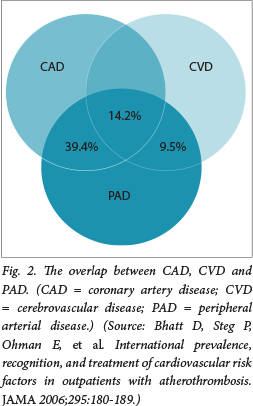Managing Lymphedema in Legs: Treatment Options in Singapore and Differ…
페이지 정보
작성자 Ethel 작성일24-07-28 15:12관련링크
본문
Lymphedema, a chronic condition causing fluid buildup in the legs, can significantly impact quality of life. Fortunately, Singapore offers a range of treatment options to manage leg lymphedema effectively. However, it's crucial to distinguish it from peripheral arterial disease (PAD), another leg condition with distinct causes and treatments.
**Understanding Lymphedema**
Lymphedema arises when the lymphatic system, responsible for draining fluid waste, malfunctions. This can occur due to:
* **Surgery:** Lymph node removal during cancer treatment can disrupt the drainage pathways.
* **Infection:** Parasitic infections, like filariasis, can damage the lymphatic system.
* **Congenital conditions:** Some individuals are born with an underdeveloped lymphatic system.
Symptoms of leg lymphedema include:
* Swelling in one or both lymphoedema legs treatment singapore
* Tightness or discomfort in the affected limb
* Skin changes like hardening or thickening
**Treatment Options in Singapore**
The cornerstone of lymphedema treatment in Singapore is **Combined Decongestive Therapy (CDT)**. This multi-pronged approach involves:
* **Manual Lymphatic Drainage (MLD):** A specialized massage technique by a trained therapist to encourage fluid flow.
* **Compression Therapy:** Wearing compression garments like stockings or bandages to reduce swelling.
* **Skin Care:** Maintaining healthy skin to prevent infections, a common complication of lymphedema.
* **Exercises:** Light exercises to promote circulation and lymphatic drainage.
 In some cases, additional therapies might be recommended:
In some cases, additional therapies might be recommended:
* **Pneumatic Compression Pumps:** These devices use inflatable sleeves to provide intermittent compression to the affected limb.
* **Lymphovenous Bypass:** A surgical procedure to create new channels for fluid drainage (available in select cases).
**The Lymphedema Society of Singapore (LLS)** [lymphedema.sg] serves as a valuable resource for patients, providing information and support groups.
**Differentiating Lymphedema from Peripheral Arterial Disease (PAD)**
While both conditions can cause leg swelling, PAD has a different underlying cause. PAD occurs when arteries supplying blood to the legs become narrowed due to plaque buildup. This restricts blood flow, leading to:
* Leg pain, especially when walking (claudication)
* Numbness or tingling in the legs
* Skin changes like hair loss or ulcers
Diagnosis involves a physical examination and tests like ankle-brachial index (ABI) to assess blood flow. Treatment for peripheral arterial disease PAD focuses on improving blood circulation through lifestyle changes, medication, and sometimes minimally invasive procedures or surgery.
Lymphedema, a chronic condition causing leg swelling, is effectively managed in Singapore through a combination of therapies like manual lymphatic drainage, compression, and skin care. Consulting a doctor to receive an accurate diagnosis is crucial. Differentiating lymphedema from PAD, a condition with distinct causes and treatments, is essential for proper management. Singapore offers a comprehensive healthcare system and specialist support groups to empower patients with lymphedema to live well.
**Understanding Lymphedema**
Lymphedema arises when the lymphatic system, responsible for draining fluid waste, malfunctions. This can occur due to:
* **Surgery:** Lymph node removal during cancer treatment can disrupt the drainage pathways.
* **Infection:** Parasitic infections, like filariasis, can damage the lymphatic system.
* **Congenital conditions:** Some individuals are born with an underdeveloped lymphatic system.
Symptoms of leg lymphedema include:
* Swelling in one or both lymphoedema legs treatment singapore
* Tightness or discomfort in the affected limb
* Skin changes like hardening or thickening
**Treatment Options in Singapore**
The cornerstone of lymphedema treatment in Singapore is **Combined Decongestive Therapy (CDT)**. This multi-pronged approach involves:
* **Manual Lymphatic Drainage (MLD):** A specialized massage technique by a trained therapist to encourage fluid flow.
* **Compression Therapy:** Wearing compression garments like stockings or bandages to reduce swelling.
* **Skin Care:** Maintaining healthy skin to prevent infections, a common complication of lymphedema.
* **Exercises:** Light exercises to promote circulation and lymphatic drainage.
 In some cases, additional therapies might be recommended:
In some cases, additional therapies might be recommended:* **Pneumatic Compression Pumps:** These devices use inflatable sleeves to provide intermittent compression to the affected limb.
* **Lymphovenous Bypass:** A surgical procedure to create new channels for fluid drainage (available in select cases).
**The Lymphedema Society of Singapore (LLS)** [lymphedema.sg] serves as a valuable resource for patients, providing information and support groups.
**Differentiating Lymphedema from Peripheral Arterial Disease (PAD)**
While both conditions can cause leg swelling, PAD has a different underlying cause. PAD occurs when arteries supplying blood to the legs become narrowed due to plaque buildup. This restricts blood flow, leading to:
* Leg pain, especially when walking (claudication)
* Numbness or tingling in the legs
* Skin changes like hair loss or ulcers
Diagnosis involves a physical examination and tests like ankle-brachial index (ABI) to assess blood flow. Treatment for peripheral arterial disease PAD focuses on improving blood circulation through lifestyle changes, medication, and sometimes minimally invasive procedures or surgery.
Lymphedema, a chronic condition causing leg swelling, is effectively managed in Singapore through a combination of therapies like manual lymphatic drainage, compression, and skin care. Consulting a doctor to receive an accurate diagnosis is crucial. Differentiating lymphedema from PAD, a condition with distinct causes and treatments, is essential for proper management. Singapore offers a comprehensive healthcare system and specialist support groups to empower patients with lymphedema to live well.

 > 고객센터 > 온라인상담
> 고객센터 > 온라인상담
 장례협동조합국화원
장례협동조합국화원